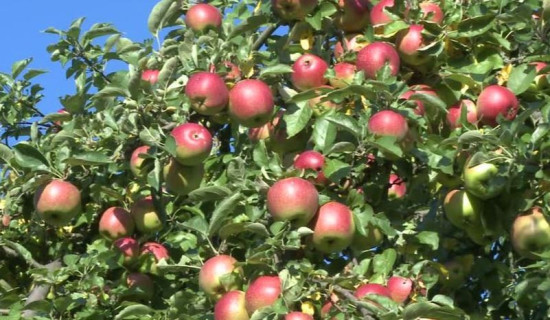- Thursday, 3 April 2025
Bayberries ripen unusually early in January
By Prem Raj Simkhada
Kalikot, Jan. 16: One cannot believe that bayberries (kafal) have ripened as early as January. But in Kalikot district, the wild fruits started ripening in the month of Poush (January).
Traditionally a fruit of Baisakh (April/May), bayberries have already begun to ripen in Shubhakalika Rural Municipality. One can see the ripened bayberries on the trees in Ward No. 4 of the rural municipality.
Locals said that the bayberries, which used to ripen in April or May in previous years, have ripened this year five months earlier than the usual time.
Khagendra Chaulagain, a Health Assistant at the Shubhakalika-4 health post, expressed his surprise upon seeing the ripened bayberries in the forest. He said that he picked the fruits from the trees, brought them home to show his family and ate.
“When I shared photographs of the ripened bayberries on social media, people did not believe me. I even sent the pictures to a few journalists, but no one showed interest. It is not just in a single tree, all the trees in the forest have ripened bayberries,” Chaulagain said. The early ripening of bayberries has surprised the locals. “We have seen a few fruits ripening as early as late Chaitra (March-April) before, but seeing them ripen early this year has left us amazed,” Chaulagain added.
Experts working in climate-related fields have attributed this phenomenon to the effects of climate change. Dipesh Acharya, who is part of the climate group under the Karnali Integrated Development and Research Centre (KIRDARC) Nepal’s Sahyatra project, said that climate change has caused unusual shifts in seasonal patterns.
He said, “The rising temperatures in the Tarai have caused rhinos to migrate toward the mountains, and fruits that traditionally ripened in April/May are now ripening as early as January. These are clear effects of climate change.”








-square-thumb.jpg)

-original-thumb.jpg)




